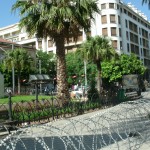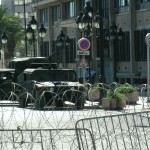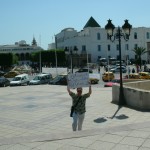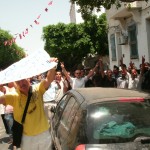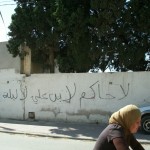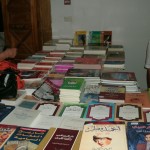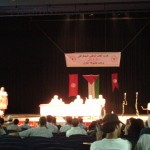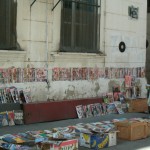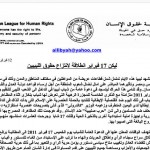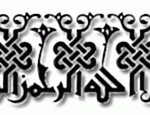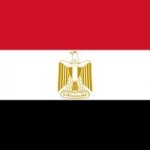
Tunisian Constituent Assembly election, 2011
One of the earlier demands of demonstrations following the 14 January, 2011 revolution that ousted the Tunisian dictatorship (and the resignation of the first interim government) was the formation of a Constituent Assembly. On 3 March, 2011, Tunisia’s interim government announced that an election for a Constituent Assembly would be held on 24 July, 2011. The Assembly will have 218 members including 19 seats reserved to Tunisians living abroad; its main task is to write a new constitution that would pave the way for legislative and presidential elections. It will also decide whether the country gets a presidential or parliamentary system, and whether a separation of religion and state becomes law. Once elected, the Constituent Assembly will have the power to either immediately appoint a new government or extend the current one’s term–which lasts until the general elections scheduled for 23 October, 2011. (Senior party members of the disbanded former ruling party, the Constitutional Democratic Rally (aka RCD, fr.) will be banned from standing in the election if they were in politics within the last ten years.)
The election date, however, had been a source of contention between major political players. On 22 May 2011, the head of the country’s newly formed Independent High Electoral Commission (aka ISIE, fr.) suggested a delay to 16 October, 2011, because more time was needed to prepare electoral lists, including putting millions into the new electoral database, and renew over 400,000 old identity cards. Negotiations between the varying political parties, the High Commission for the Realization of the Revolution’s Goals, the Electoral Commission and the interim government followed. Also, many recently formed political parties* say they need more time to prepare. The elections were finally postponed to 23 October, 2011. (For in-country voters holding a valid state-issued ID voting is a one-day event, 23 Oct.; out-of-country voters holding a valid passport vote starting Oct. 20 until 23 Oct.). The date was the result of several weeks of negotiations between political groups.
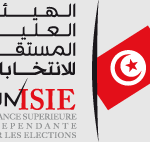
On Monday (July 11th) voter registration for the October elections began; Tunisians have until Tuesday (August 2nd) to register to vote.** A voter registration drive More than 2,000 people were trained to assist in the registration process and the overall number of voters is expected to reach 7.9 million (of the ca. 10 million Tunisian population.)

Because of low rate of voter registration, the Independent High Electoral Commission (ISIE) extended the deadline to August 14th communique-30-07-20111[1]. ![communique-30-07-20111[1] communique-30-07-20111[1]](https://blogs.cornell.edu/mideastlibrarian/files/2011/08/communique-30-07-201111-150x150.jpg) The closing date was previously set for August 2nd. However, registration will continue through October 12th for servicemen and members of the security forces, youths turning 18, voters whose ban on participation is lifted, and for Tunisians returning from overseas.
The closing date was previously set for August 2nd. However, registration will continue through October 12th for servicemen and members of the security forces, youths turning 18, voters whose ban on participation is lifted, and for Tunisians returning from overseas.
As of August 14th the percentage of registered voters on the electoral lists reached 55% of eligible voters.
From August 20th through August 26th, lists of voters would be posted at the commission’s regional offices, municipal headquarters, and at diplomatic and consular missions for Tunisian residents abroad.
_______
*There are currently more than 100 recognized and officially sanctioned political parties in Tunisia. And although electoral campaigning will officially take place between 1 and 21 October, political parties have been making use of commercials to promote their image and activities. Polls show that the Nahda party (Islamist) and the Progressive Democratic Party (PDP) are the two largest and most well-known who will snap more votes in the upcoming election.
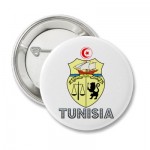
**Tunisian Constituent Assembly Elections – Why and How?
_______
POLL SAMPLES:
|
Conducted/
Published |
Polling Organisation/Client |
Sample size |
Nahda |
PDP |
Ettajdid |
FDTL |
POCT |
|
|
|
|
|
| March, 2011 |
ANSAmed |
1,012 |
29.0% |
12,3% |
7.1% |
– |
– |
| July, 2011 |
3C Etudes |
? |
14.3% |
4.7% |
– |
1.6% |
0.8% |
| July, 2011 |
Al Jazeera |
1,244 |
21.0% |
8.0% |
– |
– |
5.0% |

PARTY RALLIES:
حزب العمل الوطني الديمقراطي = Party of National Democratic Action (socialist: Hizb al-‘Amal al–Watani al–Dimuqrati; French: Parti du travail patriotique et démocratique, PTPD) [ July, 2011 (2mins.)]
*
حركة النهضة = The Renaissance Party or Nahda (Islamist: النهضة Hizb al-Nahda, also Hizb Ennahda, Ennahdha; French: Parti de la Renaissance; Mouvement Ennahda, ME) [ July, 2011 (1.21min.)]
*
احركة الوطنيين الديموقراطيين = The Movement of the Patriots Democrats (Marxist / Pan-Arabist Arabic: Harakat al-wataniyun al-dimuqratiyun; French: Mouvement des patriotes démocrates, MOUPAD) [ July, 2011 (2.28mins.)]
***
The following information is provided by the Project on Middle East Democracy:
(Middle East and North Africa International Foundation for Electoral Systems
| Washington, DC 20006 | www.IFES.org
13 July 2011)
***
Tunisia Prepares for October 23 Elections
Yesterday, the IFES released a report detailing Tunisia’s new election process which started July 11. Elections will take place on October 23, 2011 for in-country voters holding a valid state-issued ID and will begin October 20 for out-of-country voters holding a valid passport. Currently, the transitional government in Tunisia is comprised of interim president Fouad Mebazaa, prime minister Beji Caid el Sebsi as well as a cabinet.
The October 23rd elections will allow voters to elect representatives to the National Constituent Assembly (NCA) which will have one year to draft a new constitution; 199 members will be from Tunisia and 19 representing Tunisian expatriate countries in Europe and North America, totaling 218 members.
The current structure of governance includes a system of decrees and decree-laws [which are drafted by the Tunisian Higher Commission for the Achievement of the Objectives of the Revolution and the Democratic Transition (Political Reform Commission)*, and then signed by the president]. Decree-laws include but are not limited to:
- No. 4 (3/23/2011): outlines provisional division of government authority
- No. 27 (4/18/2011): establishes and defines the Instance Supérieure Indépendante pour les Élections (ISIE)
- No. 35 (5/10/2011): outlines the election process
Also, the reports articulates the electoral system; it will follow a closed-list proportional representation system which requires that 1/2 of representatives be female and the other 1/2 male. Also, 27 domestic constituencies and four out-of-country constituencies are established.
Important dates include the following:
- July 11-August 2: voter registration
- September 1-7: candidate registration
- October 1-21: electoral campaigning
- October 23: election day
According the report, there are 7 million domestic and 1 million abroad that are of voting age. Expected voter turnout is approximated at 90-95%. However, only 43% polled knew “what they are voting for”. The ISIE launched a campaign on July 11th to advertise elections and introduced a new website to inform voters of the election process, candidates, and voting rules.
——–
*Arabic: الهيئة العليا لتحقيق أهداف الثورة والاصلاح السياسي والانتقال الديمقراطي ou al-hayʾat al-ʿalyā li-taḥqīq ʾahdāf al-ṯawrah wal-aṣlāḥ al-siyāsī wal-intiqāl = French: Instance supérieure ou Haute instance pour la réalisation des objectifs de la révolution, de la réforme politique et de la transition démocratique.








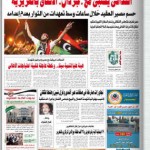
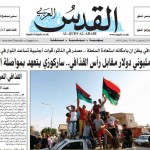

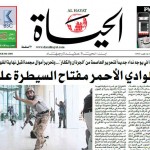
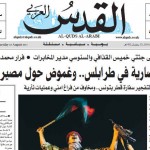



![communique-30-07-20111[1] communique-30-07-20111[1]](https://blogs.cornell.edu/mideastlibrarian/files/2011/08/communique-30-07-201111-150x150.jpg)

